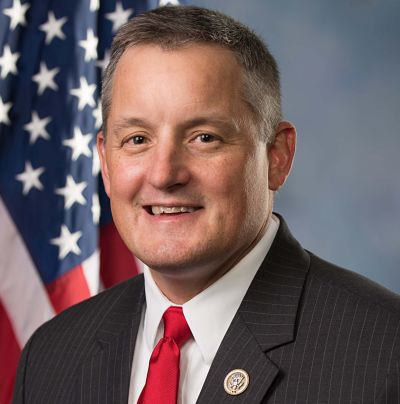
WASHINGTON – Congressman Bruce Westerman (AR-04) joined Congressman Jim Costa (CA-16) in introducing H.R. 8688 – Boosting University Investments in Low-Income Districts (BUILD) Act. This bipartisan legislation would establish a designation for regional public universities located in distressed communities, making those universities eligible for federal grants to spur economic and community development projects to build stronger, more resilient communities.
“I am proud to co-sponsor Congressman Costa’s BUILD Act to foster the economic success of low income communities by investing in Regional Public Universities that otherwise would not have access to the grants available to large, land grant universities. Regional universities are instrumental in community wide development and raising the standard of living across the board. By providing specialized grant opportunities with guard rails to ensure responsible utilization, Fourth District institutions such as Henderson State University, Southern Arkansas University Main Campus, the University of Arkansas at Monticello, and the University of Arkansas at Pine Bluff will be empowered to better serve their communities. I’m also proud to work across the aisle with my friend Jim Costa on an issue that transcends partisanship and does good for hard-working folks in rural America.” said Rep. Westerman.
“Regional Public Universities like Fresno State spur economic and community development in distressed communities along the Central Valley,” said Rep. Costa. “For far too long, these institutions have been left behind from receiving critical funding. As an alumnus and former Fresno State Bulldog, I am proud to introduce this groundbreaking legislation that could provide significant investments to bolster our regional economy and build new opportunities for Valley residents to thrive.”
Background
Regional Public Universities (RPU) promote economic and community development for distressed communities by supporting the workforce and leading to faster employment growth, along with a higher per capita income. The United States provides a significant amount of federal funding for large universities, both public and private, such as R1s and land-grant institutions that are in distressed communities. For example, R1 research universities receive robust federal funding through so-called “indirect costs,” which are the portion of federal research funding that goes to cover general university overhead.
This bill would close the federal funding gap between large, public research universities and regional public universities by creating a special designation that sets aside funding for RPUs. The universities that would be eligible for this funding must be four-year colleges, rely on in-state enrollment, and not research universities (R1) or land grant universities.
The BUILD Act would establish a grant program for designated “Regional Public Universities” that would provide federal grants between $25-50 million over five years for the following:
- Address Regional Public Health Challenges: Build and maintain health clinics accessible to the public on or near the campus of the institution of higher education. It would also provide opportunities to educate, recruit, and train members of the community to become healthcare professionals.
- Early-Stage Business Seed Money: Support local entrepreneurs with opportunities to apply for federal grants that can help start or grow a business and support small business development.
- Modernize the Broadband Network: Build and maintain municipal broadband networks and related infrastructure for eligible and designated higher education institutions.
- Revitalize Critical Infrastructure: Renovate, construct, or maintain buildings that benefit the community, including libraries, laboratories, housing for students, museums, theaters, and art centers.
- Strengthen the Workforce: Partner with industries and higher education institutions to create jobs, which would help decrease the unemployment rate in the community.
This legislation would grant up to $1.7 billion per year for five years for this program and could benefit up to 174 public four-year universities including FOUR institutions in Arkansas’ Fourth District: Henderson State University, Southern Arkansas University Main Campus, University of Arkansas at Monticello, and University of Arkansas at Pine Bluff.
Arkansas’ Fourth District would be in the top 10 districts for the number of eligible schools.
A one-pager of the bill is available here.
The full text of the bill is available here.







